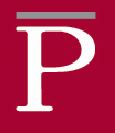
Supporting the media to effectively cover the COVID-19 response in Southern Africa
Lusaka, 18 April 2020: Panos Institute Southern Africa is calling for increased support for media houses and individual journalists to effectively cover the response to the COVID-19 public health emergency, while staying safe from infection and other risks.
While most of us are staying at home and working remotely in line with measures put in place by governments to curb the spread of COVID-19, media practitioners are out there generating in-depth information, educating the public and keeping various stakeholders up to date on this public health emergency. In most cases, the journalists do so at great personal risk, without personal protective equipment.
As governments and other agencies collaborate to tackle the COVID-19 pandemic, the media has a duty to ensure all stakeholders, especially the poor and marginalised communities, have access to timely, in-depth and authentic information on the pandemic, its impact and efforts to address it. The media must also provide a platform for supporting different stakeholders to effectively participate in the COVID-19 response.
As a watchdog, the media must highlight human rights violations and other gaps in the response at the local and national level, and packaging the content in a manner that will stimulate effective and timely response actions by government and relevant stakeholders.
However, the media cannot play its role without the support of law enforcement agencies, cooperating partners, local and national health authorities and other government entities, opinion leaders and civil society.
The media must be supported to produce evidence based, high quality and in-depth content while guaranteeing the safety of journalists from COVID-19, and from being abused or violated while doing their work.
With support from our partners such as the Norwegian Agency for Development Cooperation (NORAD), Winrock International through funding from the US Department of Labor, Save the Children, the National Endowment for Democracy (NED), and the Canada Fund for Local Initiatives, we have provided basic preventive accessories like hand sanitisers for community radio stations, as well as rural based radio listening clubs and community action groups.
We are also supporting some individual journalists with investigative media fellowships to generate in-depth content, and debunk false information on the COVID-19 response.
Further, we are collaborating with various stakeholders to ensure the protection of the rights of journalists and other information disseminators as they carry out their duties in this challenging time.
While we commend governments in the region for proactively sharing information on the pandemic, we call for the removal of any restrictions limiting journalists and media houses in the exercise of their duties.
We encourage media practitioners to adhere to guidelines from health authorities in dealing with Covid-19. We also remind our colleagues in the media that no story is worth dying for.
We are confident that with adequate support, the mainstream, community and online media can influence transparency and accountability in the COVID-19 response, and contribute to increased adherence to the tenets of democracy, human rights and the rule of law.
Issued by:
Vusumuzi Sifile
Executive Director, Panos Institute Southern Africa (PSAf)
Email: vusa@panos.org.zm